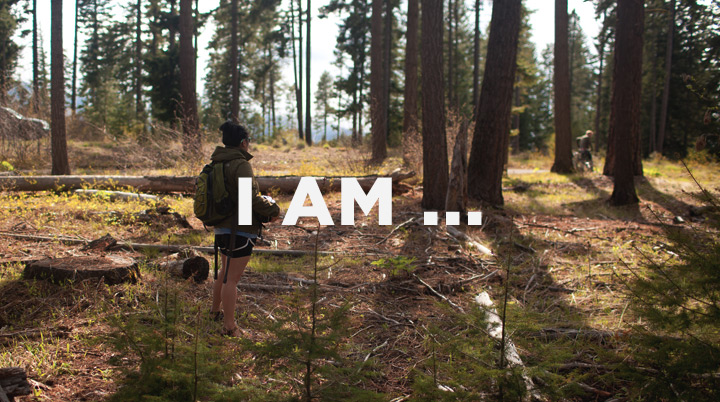Latest
-
Objections to the Christian Faith from the Unchurched and De-Churched
 Tue Dec 02, 2014
Tue Dec 02, 2014
by Resurgence -
Craig Groeschel: We Innovate for Jesus
 Tue Oct 14, 2014
Tue Oct 14, 2014
by Resurgence -
Mark Driscoll: Revelation
 Tue Oct 07, 2014
Tue Oct 07, 2014
by Resurgence -
RESURGENCE LEADERSHIP #034: JOHN PIPER, WHY I TRUST THE SCRIPTURES, PART 2
 Tue Sep 30, 2014
Tue Sep 30, 2014
by Resurgence -
Resurgence Leadership #033: John Piper, Why I Trust the Scriptures, Part 1
 Tue Sep 23, 2014
Tue Sep 23, 2014
by Resurgence

Archives
I am ...

Who are you? What defines you? What is your identity? How you answer those questions affects every aspect of your life. So, it’s key to get the answer right. In Who Do You Think You Are?, Pastor Mark Driscoll helps you explore the answer to those questions by exposing common misunderstandings, while leading you to discover who you are in Christ.
In the movie Memento, Leonard Shelby tries to track down his wife’s killer. Complicating the search is the fact that as a result of a blow to the head by the murderer, Leonard suffers from anterograde amnesia, a condition that makes it impossible for him to remember anything new for more than a few minutes.
To cope with his amnesia, Leonard creates a complicated system of notes, Polaroid photos, and tattoos to remember facts and string together evidence to find his wife’s killer and exact revenge. Unfortunately, several shady characters try to manipulate Leonard’s condition for their own gain. Using his amnesia against him, they tell him lies about his past, who he is, and their intentions for him.
Memento toys with the concepts of identity and truth. As the movie progresses, doubt is cast on Leonard’s version of the story, and you begin to wonder if the Leonard the movie portrays is really the true Leonard.
In one important scene, Teddy, Leonard’s crooked “friend,” says to him, “You don’t know who you are anymore.”
“Of course I do,” Leonard responds. “I’m Leonard Shelby. I’m from San Francisco.”
“No, that’s who you were,” Teddy says. “Maybe it’s time you started investigating yourself.”
What follows is a series of revelations about Leonard that cause him to question the identity he’s built for himself. He then suffers a severe identity crisis that leads to the movie’s shocking ending—all because he can’t remember who he is.
Identity crisis
As Christians, we’re a lot like Leonard. We have a condition. We’re continually forgetting who we are in Christ and filling that void by placing our identity in pretty much anything else. This leads us to often ask, as Leonard did, “Who am I?” The question is far-reaching, belief-revealing, life-shaping, and identity-forming. How you answer determines your identity and your testimony. Tragically, few people—even few Bible-believing, Jesus-loving Christians—rightly answer that question.
How we see ourselves is our identity. Our culture talks about identity as self-image or self-esteem. As a parent and pastor, I believe that correctly knowing one’s true identity is the one thing that changes everything.
For years, I pastored and counseled people struggling with issues such as alcoholism, sexual perversion, pride, depression, anger, bitterness, and more. Often I felt as though I were talking to a wall because, though I gave biblical counsel, many people seemed to either not hear or not care and instead continued down a path of destruction. It was frustrating and heartbreaking. I felt there had to be a way to help people find freedom.
Then, thanks in large part to the wise words of older and more seasoned counselors, it dawned on me that underlying our struggles in life is the issue of our identity.
This world’s fundamental problem is that we don’t understand who we truly are—children of God made in his image—and instead define ourselves by any number of things other than Jesus. Only by knowing our false identity apart from Christ in relation to our true identity in him can we rightly deal with and overcome the issues in our lives.
My hope is that, by the grace of God, truth of Scripture, and power of the Holy Spirit, this book will help you know your identity in Christ so you can live as you should.
You aren’t what’s been done to you but what Jesus has done for you. You aren’t what you do but what Jesus has done. What you do doesn’t determine who you are. Rather, who you are in Christ determines what you do. These are fundamental truths that we’ll explore in depth throughout the new book.
Pick up the new book here
Adapted excerpt from Who Do You Think You Are? by Mark Driscoll copyright © 2013